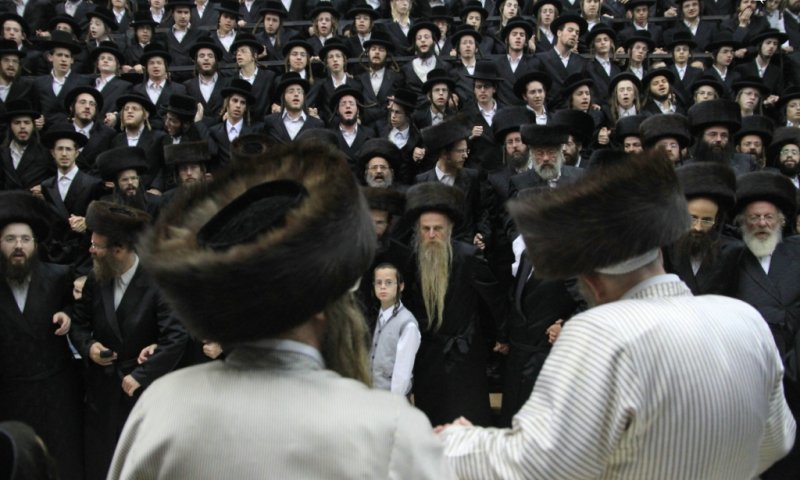
New research: A synagogue is a protective factor against disease
Accumulating evidence for the role of religion in improving medical condition • According to the study, going to the synagogue was associated with a decrease in morbidity
- Nachman Gur, B'Chadrei Charedim
- ה' טבת התשע"ג

יעקב לדרמן
The connection between improved health and religious life, combining faith in G-d and prayer, is one of the puzzles with which Western medicine is trying to cope in recent years.
According to a report in Haaretz, a new survey published in the October issue of the Journal of Medical Association imaj findings examined the lifestyle of 1,287 Israelis, Jews over the age of 50, as collected in a comprehensive European study on health and aging, known as 'share', carried out between 2004 and 2006 in ten European countries and Israel.
The operation, performed by Dr. Jeff Levin at the Institute of the Study of Religion at Baylor University in Texas, raised walking to synagogue was a predictor of improvement in health. This is based on examining the relationship measures, including ongoing medical problems, activity limitations, diagnosed chronic diseases and physical symptoms such as heart problems, shortness of breath, sleep disturbances and falls.
According to the study, walking to the synagogue was associated with a decrease in morbidity, even after controlling for intervening variables such as age. Lack of social support outside the research associated with worse health outcomes - a finding that illustrates the living conditions of isolation with which adult patients have severe deficits in social interaction.
According to the researcher, the findings suggest that the synagogue is a protective factor against disease among Jewish adults, while prayers were reported mainly in patients in poor health, has a therapeutic tool to help deal with serious injury.
"The study offers evidence of medical benefit from the Jewish religion, whether as a shield or as a tool for coping, consistent with the findings of other studies," says Levin.
Haaretz reported further that additional evidence in the role of religion in improving the medical condition is growing recently.
For example, researchers at the University of Tel Aviv reported in July that found prayers reduce the risk of developing Alzheimer's disease and memory loss.
Researchers from the Hebrew University and Hadassah established over a decade ago that the death rates from heart disease and tumors in secular kibbutzim are higher than in religious kibbutzim.
תגובות
{{ comment.number }}.
הגב לתגובה זו
{{ comment.date_parsed }}
{{ comment.num_likes }}
{{ comment.num_dislikes }}
{{ reply.date_parsed }}
{{ reply.num_likes }}
{{ reply.num_dislikes }}



הוספת תגובה
לכתבה זו טרם התפרסמו תגובות